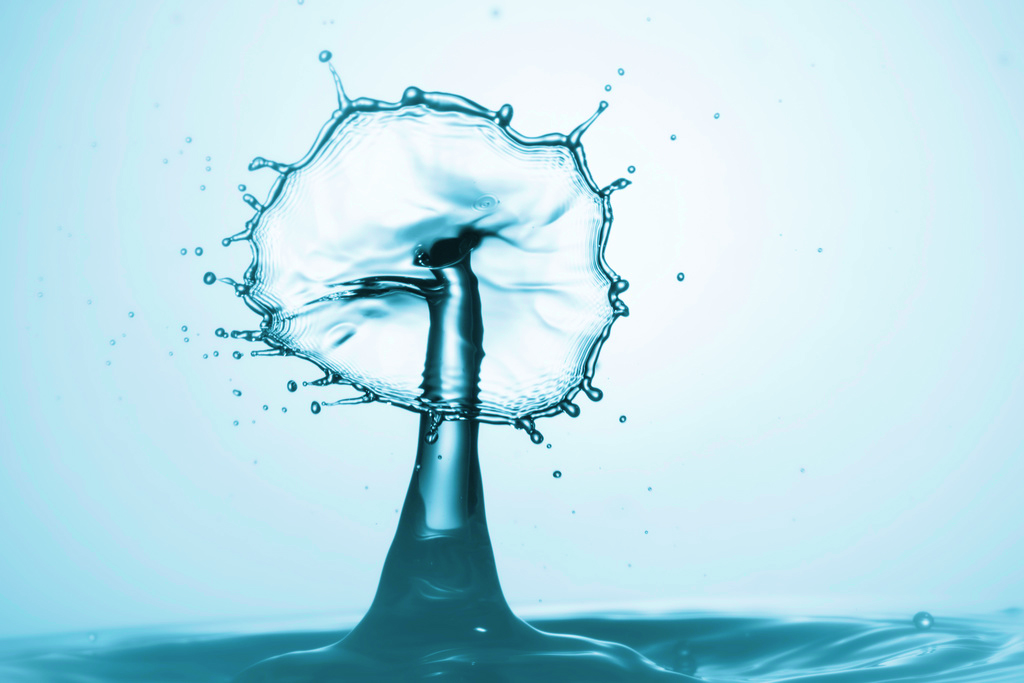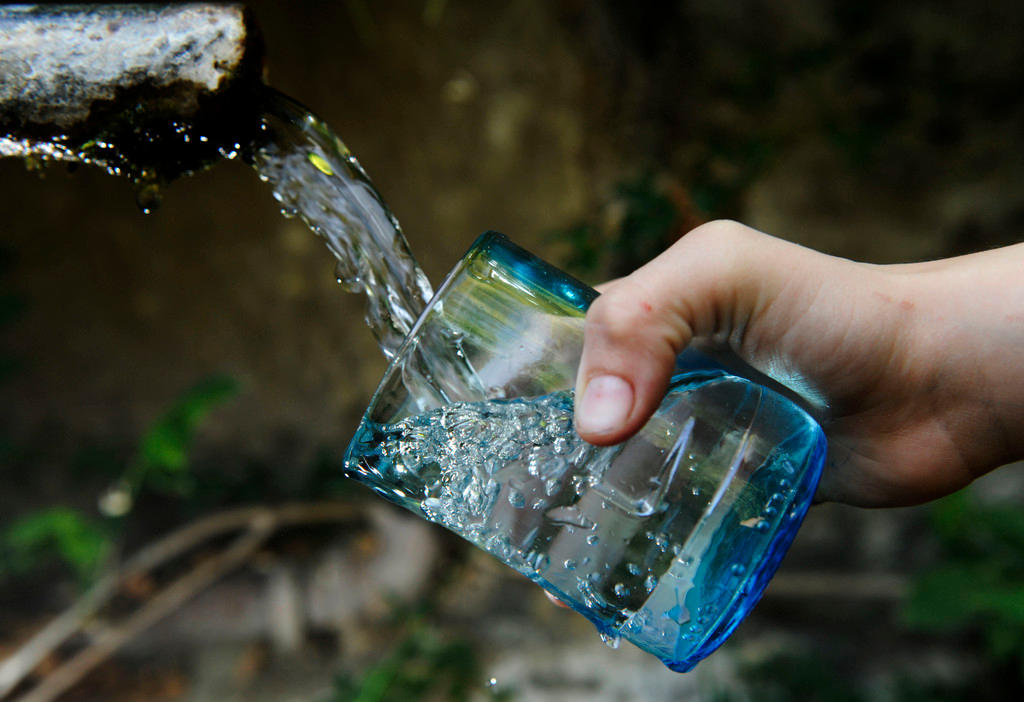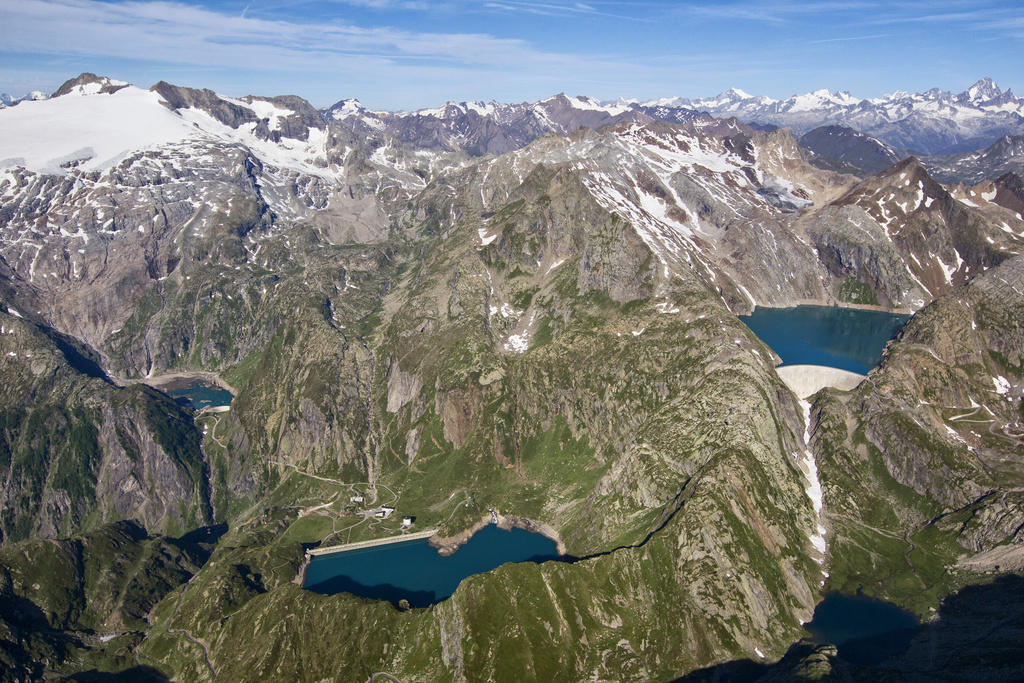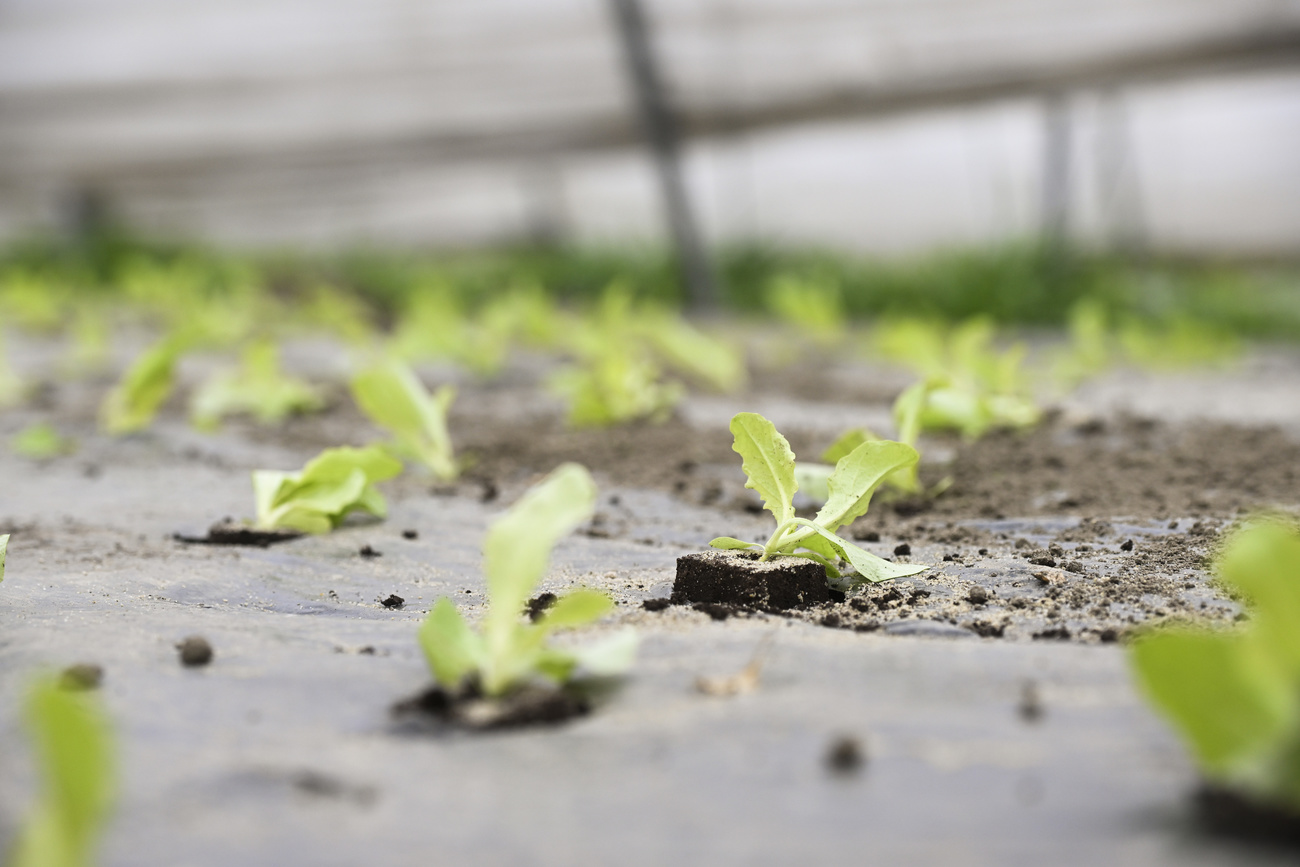Water shortage: Switzerland’s blue gold is under pressure

Around the world, conflicts are breaking out over water shortages. This precious resource has always flowed abundantly in Switzerland. Now, frequent droughts and high demand are increasing tensions and calls for regulation.
Lakes, rivers, and streams: Switzerland has no shortage of water. It is no coincidence that the Alpine country is sometimes referred to as “Europe’s water tower”. It is home to 6% of the continent’s freshwater reserves. Switzerland is also rich in groundwater. Some 150 billion cubic metres of it flow through the country’s rocks and sediments, compared with 100 billion cubic metres in FranceExternal link and less than 49 billion cubic metres in GermanyExternal link.
The story of water in Switzerland would end here were it not for the fact that this resource is now under pressure. Contributing factors include long periods of drought due to climate change, urbanisation and water pollution. In the future, certain parts of this small country will be especially affected.
Water is becoming scarce in many parts of the world. Even Switzerland, which holds much of Europe’s water, must rethink its management and prepare for increasingly frequent droughts. This series explores the potential conflicts related to water consumption and the potential solutions for better management of this precious resource.
Household consumption down, but not thanks to users
Since the 1990s, water use has decreased from 400 litres to 300External link per person per day as water infrastructure and household technologies have become more efficient. But the Swiss population uses among the most amount of water per person per day in Europe. Almost half of the consumption, 142 litres, is due to household activities. Toilet flushing, showers and baths are responsible for more than half of water use.
Lack of data on industrial and agricultural consumption
While we know how much water is being consumed by households in Switzerland, it’s a different story when it comes to industry or agriculture.
Half of the water used by industry and agriculture is extracted privately and is not tracked. For example, the water that farmers pump from rivers, lakes or aquifers is in most cases not metered. That’s because there has always been so much water in Switzerland that calculating total consumption has never been a priority. Most Swiss cantons, which are responsible for water management, have not set up a system to collect this data. Canton Basel Country is one of the few regions to have imposed stricter water monitoring because of intense consumption by its chemical industries.
With water starting to run out during summer droughts, the lack of data is becoming a problem. “If we don’t know how much water we really consume, how do we change our behaviour in response to climate change?” says Bettina Schaefli, head of the hydrology unit at the University of Bern.
Across Europe, several countries are more advanced when it comes to monitoring water resources. In Germany, for example, statistics on the use of privately extracted water must be kept.
Petra Schmocker-Fackel, deputy head of the hydrological division at the Swiss Federal Office of the Environment (FOEN), says that the government is aware of the problem and is “working on it”. Together with the Federal Statistical Office, the FOEN will launch a project this year to collect data on a national scale on the different types of water consumption other than household use.
Swiss water quality is declining
Although Switzerland’s many swimmable lakes and rivers may suggest otherwise, the expansion of urban centres and intensive agriculture are significantly degrading water quality throughout the country.
“Water quality is a major concern in Switzerland,” says Schaefli.
Until now, only a quarter of the country’s drinking water, which comes mainly from groundwater or springs, needed to be treated before use. But cosmetics and chemicals used in urban areas, as well as pesticides and agricultural fertilisers, are accumulating in groundwater, with harmful consequences for the environment and human health.
“A solution must be found to adapt regulations on the use of these chemicals,” says Schaefli.
Droughts are having uneven effects
Persistent droughts in Switzerland over the past 20 years could become a problem for the country’s water supply, especially in remote areas. The Swiss water supply network is managed on a local level, making even distribution across regions a challenge.
Some communities in the Jura mountains in the west of the country and in the Alps do not have access to groundwater reserves but rely on water stored in snowpacks, glaciers and springs. They will be most affected by the consequences of prolonged drought. In the Alps, farming communities are already suffering, especially in summer.
Some municipalities are finding ways to distribute their water supply to other regions, according to Urs von Gunten, a researcher at the Federal Institute of Aquatic Science and Technology (Eawag). The city of Zurich, for example, supplies drinking water to more than 60 communities throughout the rest of the canton of Zurich on an as-needed basis.
“This process needs to be enhanced in the future to overcome the summer drought,” von Gunten says.
He believes communities should work together to compensate for water shortages but acknowledges this is easier said than done. “Water at the local level is considered a privilege. And there are many communities that prefer to remain independent,” he says.
Tensions flare around water
Conflicts over water use are widespread in SwitzerlandExternal link, although there is a lack of precise data on their extent. For example, prolonged periods of drought have increased the need for water to irrigate agricultural fields, which is sometimes taken from the same underground water reserves that supply homes. And pollution of surface and groundwater by agricultural activity decreases the availability of drinking water while increasing its cost. These conflicts between the agricultural sector and the general Swiss population could become a problem in the future, says Schmocker-Fackel.
The energy industry, which also requires water to produce electricity, is trying to reach an agreement with farmers on access to lake basins during the summer months. Amid rising temperatures, the Swiss chemical and nuclear industries need more water to cool their plants. The same applies to the financial and technology sectors, which use groundwater or river water to keep their servers cool.
And tensions are growing along Switzerland’s borders over the use of water resource. France would like Switzerland to release more water from Geneva’s Seujet dam to cool its nuclear plants in summer, while Italy would like to store more water in Lake Maggiore, which straddles the two countries, for irrigation purposes.
Thirsty for resources
Reconciling these interests is complicated but possible, says Schmocker-Fackel. She sees solutions in better water-management at a cantonal level, monitoring of consumption and the expansion of water supply networks. Investment in more efficient irrigation techniques would help to reduce water waste and evaporation, as would the recycling of so-called “gray water” (kitchen and shower waste) and more frugal consumption habits by households.
But even if it did all of this, Switzerland would not decrease its total water footprint. That’s because more than 80% of its water consumption is “hidden” in consumer goods such as imported products and services, a federal report shows. Switzerland may be the “water tower” of Europe, but it also has an insatiable thirst for more.
“We must assume our responsibilities,” Martin Dahinden, former director of the Swiss Agency for Development and Cooperation, writes in the report. “This is not just about international solidarity, but about the development of our country.”
Edited by Sabrina Weiss and Veronica De Vore. Translated from the Italian.
More

More
The ‘virtual’ water that the Swiss consume abroad

In compliance with the JTI standards
More: SWI swissinfo.ch certified by the Journalism Trust Initiative
















You can find an overview of ongoing debates with our journalists here . Please join us!
If you want to start a conversation about a topic raised in this article or want to report factual errors, email us at english@swissinfo.ch.